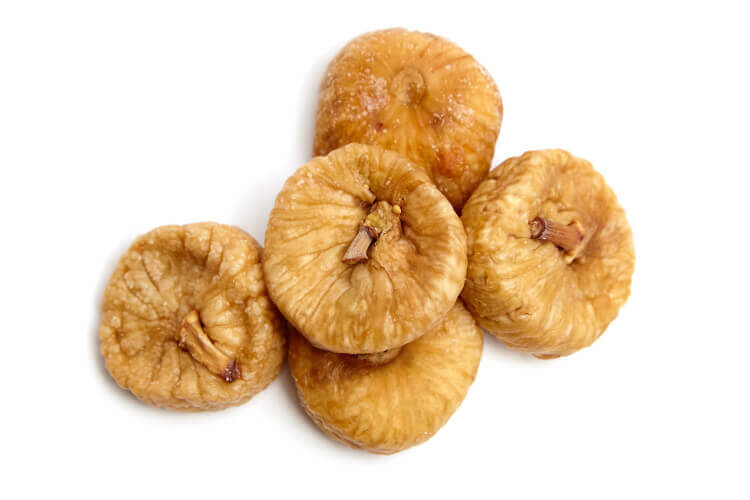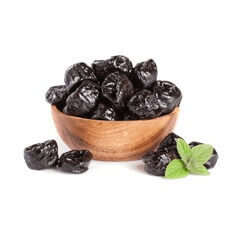Dried Figs Canada
- Home
- Dried Fruits

Dried Figs
Are you looking for Dry Figs in Canada? We are happy to tell you that you are at the right place. Adnoor is a trusted brand by Canadians and is the best-dried figs store in Canada. We aim to continue providing quality dry fruits to our valuable clients so they keep trusting us. The dried figs we provide are not only tasty but also packed with many nutritional benefits. There are many stores that claim that they supply the best dry figs in Canada. But, it is also a fact that no one can beat the taste and authenticity of Adnoor dried figs. As far as dried figs price is concerned, Adnoor sells its dry figs at the best rates that are favourable for the customers. So, if you want to cherish some quality dried figs, give Adnoor a chance, and you will be more than satisfied with your decision.Dried figs, also known as anjeer, are an excellent source of energy and supply the body with natural health benefits. They are delicious, sweet fruit that is also rich in antioxidants. For centuries, people have enjoyed the wonderful flavours and health benefits of figs. Dried Figs are naturally dried without any chemicals or additives. A delicious and healthy snack to enjoy. Dry figs are perfect for any day of the week and make a fantastic on-the-go breakfast; they are also a great source of fibre, potassium, calcium, and other nutrients. If you search for dry figs in Canada, you can also find Turkish figs.
The Essence of Figs Canada
Nestled amidst Canada’s pristine landscapes, Figs Canada stands as a beacon of excellence in fig cultivation. Renowned for its unvarying commitment to delivering top- quality dried figs, this region combines the blessings of nature with the art of sustainable farming practices. Figs from Canada aren’t just a fruit; they’re a testament to the harmony between the earth and its stewards. The result is a dried fig that embodies nature’s purity and potence.

Why buy Dried Figs?
Dried figs, regardfully known as Anjeer dry fruit, are a revelation for the senses. With their distinctive sweet, chewy texture and an unmatched flavor that dances on your taste buds, they’ve captured hearts and palates worldwide. still, what truly elevates dried figs to a league of their own is their exceptional nutritive abundance. These apparently unassuming fruits are a powerhouse of essential vitamins, minerals, and dietary fiber. Whether you are indulging your sweet tooth or making conscientious choices for your well- being, dried figs are a tasteful and nutritional choice.
Buy Dried Figs to get Health Benefits
The consumption of dried figs offers a plethora of health advantages. Their high dietary fiber content supports digestive health, aids in weight management, and imparts a feeling of satisfaction, making them a perfect snack or addition to multiple recipes. Dried figs are also a rich source of essential minerals like calcium, potassium, and magnesium, all of which play vital functions in maintaining strong bones, regulating blood pressure, and securing optimal heart function. also, dried figs contain antioxidants that wage war against free radicals, fortifying your immune system and enhancing overall well- being.


Buying dried figs due to Culinary Versatility
One of the most captivating sides of dried figs is their culinary versatility. These Anjeer dry fruits can transform the simplest dishes into culinary masterpieces. Sprinkle them over salads for a touch of natural sweetness and texture, stir them into oatmeal for a wholesome breakfast, or use them to elevate the flavors of baked goods, charcuterie boards, and savory creations. The possibilities are as endless as your culinary imagination. Be sure to explore our devoted recipe section for a treasure trove of creative ways to incorporate these amusing dried figs into your day-to-day meals.
Figs Canada brings us an extraordinary product in the form of dried figs. These Anjeer dry fruits aren’t only a treat for your taste buds but also a boon for your health. Whether savored as a quick and nutritional snack or skillfully incorporated into different culinary creations, dried figs earn a special place in your pantry. Embrace the goodness of Figs Canada and embark on a delectable journey with Anjeer dry fruit.
Where to Buy Dried Figs in Canada?
Explore our store now and set sail on a mouthwatering adventure with the finest dried figs from Canada. At Adnoor.ca, we’re committed to delivering unparalleled quality and taste right to your doorstep. Do not miss out on this tasteful experience; order your dried figs now! Your taste buds and your health will thank you, and you will be joining a world of food enthusiasts who appreciate the natural wonder of Figs Canada.
Fig dry fruit contains a number of beneficial minerals, vitamins, and antioxidants, including soluble dietary fibre and antioxidant pigment. Despite their low-calorie content, figs are a great source of calories, carbs, fibre, copper, magnesium, potassium, thiamine, vitamin K, and vitamin B6. Fresh figs, especially black Mission figs, are particularly good at neutralizing free radicals. Chlorogenic acid, tannins, lutein, carotenes, etc., are present in adequate quantities in figs. In addition to these antioxidants and vitamins, fresh figs contain adequate levels of vitamins A, E, and K. These phytochemical substances help eliminate dangerous oxygen-based free radicals from the human body, protecting us from cancers, diabetes, degenerative diseases, and infections.
When you are selecting dried figs, avoid the ones that are excessively soft, bruised, or infested with fungus. Unripe green fruits should also be avoided because they are both sour and tasteless. Be sure to store dry figs in airtight containers away from moisture, humidity, sunlight, and high temperatures. If stored properly, dried figs can last for up to eight months.
Figs must ripen completely on the tree before being picked. They may be eaten fresh or dried in the sun or in an artificial heat source. Wash fresh figs in cold water, and then gently wipe them dry with a soft cloth or tissue. You may eat figs fresh or peeled. They will taste better and have a richer flavour if they are brought back to room temperature from the cold after being taken out of cold storage.
Some figs produce white latex when wounded, which can cause skin inflammation if it comes in contact with it. It contains furocoumarins, 5-methoxy psoralen (5-MOP), and other chemicals, etc. Allergic reactions can be caused by these substances if they come in contact with the skin. It can also cause severe allergic reactions if left untreated. (Medical disclaimer) Fig dry fruit may also cause allergic reactions in some individuals, ranging from nausea to skin itching and diarrhea. As a result, individuals with a history of fig allergy should avoid consuming figs.










